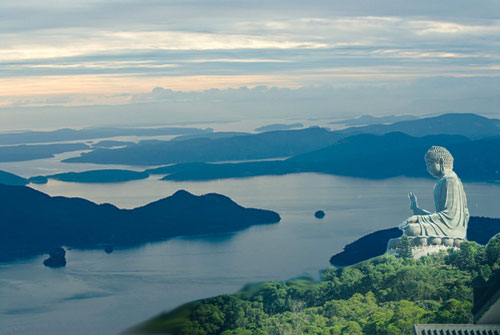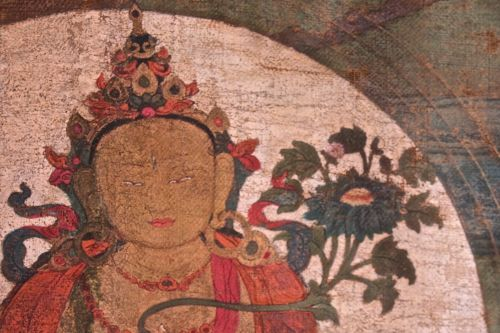Met a lovely woman recently at Sunset Hill Park. Rosalind was seated facing west on one of two benches at a bend in the footpath overlooking the Shilshole Marina, Puget Sound and misty Olympic Mountain range beyond. I acknowledged her and took a seat on the empty bench in the shade of a Japanese Pine tree a few feet away. She commented, I commented on the remarkable weather. Typically a strong prevailing wind blows from the north down along the bluffs, but that afternoon was different. There was a palpable air of tranquility about the park, even the most raucous and territorial of resident crows sat subdued in their perches. Our conversation flowed effortlessly as we mused on the panorama and grandeur of it all.
I learned she lives in Michigan and was here in Seattle visiting her son, daughter-in-law and a newly-minted grandson. In turn she inquired whether I have children.
“Oh yes, I’ve raised a daughter,” I responded with a disarming smile.
So we’d established points of origin, Michigan – mine Southern California. She mentioned she’d been at a retreat in northern CA a few months earlier.
“What type of retreat?” I asked.
“Buddhist.”
“Are you a Buddhist?”
“It would seem so. It’s a long way from my liberal Presbyterian upbringing.” Rosalind smiled.
“Well it seems to me most everyone is beating a path to the godhead,” I quipped.
“Are you familiar with Buddhism?” she asked.
“To an extent, it’s such a vast subject,” I replied.
“That’s true; I’ve been a practicing Buddhist for 30 years and feel like I’ve barely scratched the surface.”
I talked about how Buddhism had helped me the most when my mother was terminally ill. How I’d felt terrified when she told me it was “time” to come home and my great apprehension about the undertaking that lay ahead. How was I going to attend to her and my own needs during the last few months of her life? The Christian texts I’d been perusing sadly fell short for me in this respect. An acquaintance had given me a pocket version of The Tibetan Book of the Dead to bring home to CA. This ancient text spoke to me and proved to be invaluable while doing her hospice care. Rosalind nodded her head in agreement.
I continued, within a year or so of my mother’s passing I was asked to collaborate with a composer on a commissioned piece. I was given carte blanche. A further sojourn into Buddhism, I decided, and in particular the study of the White Tara deity, whose attributes include compassion, long life, healing and serenity. Once I’d conceptualized the piece, the composer began to arrange a multi-track soundscape of trance-inducing chants and percussive instruments, i.e. singing bowls, a dorje bell, etc. I worked on the choreography and performance aspects of the “Vajrasattva,” which in effect humanized the White Tara via mudras and sustained postures. The performance of the piece was well-received by the public and critics alike. It had been an enriching project, although when I look back the irreverent part of me, that part thinks of it as “The Gong Show” without the hook.
“So you’re an artist,” Rosalind commented.
“It would seem so,” I demurred.
I didn’t go on about my brushes with Buddhism, how I’d gone to hear the Dali Lama speak on campus at the UW 40 years ago or about being given a personal mantra and sacred scroll by a Tibetan monk back in the mid 1980’s, which I’d kept tucked away all these years.
We touched on the Buddhist belief of what causes human suffering; attachment and desire.
She said what Buddhism boiled down to for her is kindness, and it was easy to believe she lived by this truth. I knew I could trust her to tell her I’d suffered an unspeakable loss.
Looking down into her lap and with a level voice, she asked if I had lost my daughter.
“I did.”
All she was able to do was shake her head, no, no, no.
“There aren’t – words fail me. She was my only child.” I choked.
It’s wrong, she repeated several times, it’s wrong; and in doing so, validated my abiding sorrow.
She began to weep and express the most heartfelt sympathy. We wept together, apart.
Through tears I told her nothing makes sense, and I feel so restless in my soul.
“Who wouldn’t?” She said.
Then she asked, “How long has it been since you lost her?”
“It has been ten long years. I still resist it and nothing in me can or wants to say goodbye. There’s this misconception floating around that it gets better with time, but that isn’t true to my experience. I do need to release whatever pain I’m holding that interferes with her loving reach. Our love for each other matters more than anything else.”
Rosalind listened intently and, being wise, did not try to fix or change a thing. She stood with me in the fire and became an illuminated mirror of pure compassion wherein I might accept myself. In her presence it was safe to be naked, ugly and loved.
Before leaving the park she asked, “Can I hug you?” I stood up as she approached me – she held me for quite a while. Mid-embrace I took off my sunglasses, making eye contact. The benevolent gaze of her clear blue eyes continues to comfort me.
It was a mercy to have met Rosalind, and yet I felt saddened to see my White Tara go.
Having parted company, I returned to the seat on the bench beneath the Japanese Pine tree. The Puget Sound lay before me still as a painting; the atmosphere was replete with calm, soft as a whisper and mild as milk; much like Buddha’s heart.



